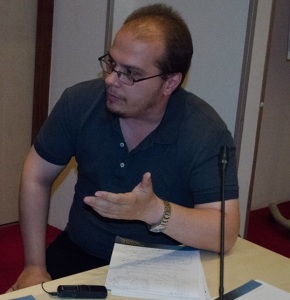 An oncologist from Tulcea, a city 280 kilometres east of Romanian capital Bucharest, returned to work one week into his retirement because there was no other specialist to care for his 4000 patients. In Maramureș, a Romanian county on the northern border with Ukraine, an anaesthesiologist has to commute between two towns so that emergency surgeries can be performed–other operations are being postponed for less crowded days. Călărași, a poor county in the south, only has one diabetologist.
An oncologist from Tulcea, a city 280 kilometres east of Romanian capital Bucharest, returned to work one week into his retirement because there was no other specialist to care for his 4000 patients. In Maramureș, a Romanian county on the northern border with Ukraine, an anaesthesiologist has to commute between two towns so that emergency surgeries can be performed–other operations are being postponed for less crowded days. Călărași, a poor county in the south, only has one diabetologist.
All of these reports are partly owing to the massive migration of medical personnel, which began after Romania’s accession to the European Union in 2007. Between 14 000 and 20 000 doctors—and probably at least as many nurses—have left the country over the past seven years, leaving behind patients with even poorer access to care and overwhelmed colleagues. Many Romanians are pinning their hopes for solutions on the EU—the destination for most migrant health workers.
Two years ago at the European Health Forum in Gastein, John Dalli, the European commissioner for health at the time, told me that he sees this phenomenon as a “reversal of solidarity,” and blamed rich EU member states for “poaching” doctors and nurses from poorer countries, which have invested billions of euros from their small budgets in healthcare workers’ training.
This year, the migration of healthcare workers was again high on the forum’s agenda. But despite strong statements by the former commissioner, there is actually not much that Europe can do to solve Romania’s problem. The EU promotes free movement of people and harmonisation of health training, thus enabling mobility, Professor James Buchan from Queen Margaret University in Edinburgh told me. Even the European Joint Action on Health Workforce Planning and Forecasting— which, as its Belgian coordinator acknowledged, was born out of political speeches on the mobility issue—is aimed not at policy coordination between the 28 member states in order to cover all their needs, but at strengthening the capacity of individual countries to manage their own problems.
Indeed, each country holds the key to recruiting foreign workers and retaining the ones it has trained. Miklos Szocska, a former Hungarian minister of state for health, described to me one of the innovations that his government came up with in reaction to 10% of its medical population leaving. The government introduced a tax on products with a high salt and sugar content, increased excise duty on alcohol and tobacco, and used the tens of millions of euros it raised to increase wages in the medical sector for the first time in eight years.
Although salaries by no means reached the levels of wealthier EU countries, the pay rises were enough—along with an increased budget for primary care and scholarships for residents—to slow down migration. The measure has also encouraged food producers to reformulate their products and has improved consumers’ habits, which in turn led to a reduction in cardiovascular mortality. A powerful majority in the parliament and strong political will were essential to dealing with the huge industry lobby, Szocska told me.
While our neighbours were making efforts to keep their health workforce at home, Romanian leaders had no effective response to the deepening crisis. One of the strategies suggested by Buchan—a return of service from health workers whose training was paid for by the state—has been introduced for some medical residents, but can be either ignored or eluded. If you get an offer from abroad, you can just leave and easily pay off your debt to Romania from there, as a group of young graduates studying for their residency exam explained to me.
Plans to build European funded regional hospitals that would offer modern conditions to health workers have been heralded for years and are not likely to come true anytime soon. Moreover, there was never enough money in Romania’s health budget (one of the smallest in Europe) for substantial wage increases.
And you can forget about finding innovative sources to finance the health budget: the current left wing government— like all before it—never stood up to the junk food and tobacco industry. It is not support in parliament that it’s lacking—it actually has one of the strongest majorities in recent years—but political will. Income growth is only a promise for election campaigns, like the current presidential race, where the incumbent prime minister is the front runner. This promise is probably aimed at patients who wonder why their caregivers are leaving, rather than at doctors and nurses themselves: they’ve heard such promises before and they are still packing.
Mihail Călin, MD, is a Romanian health and medical journalist.
Competing interests: I declare that I have read and understood the BMJ policy on declaration of interests and I have no relevant interests to declare.
Read this BMJ Careers article: Shortage of doctors across Europe may be caused by migration to UK
